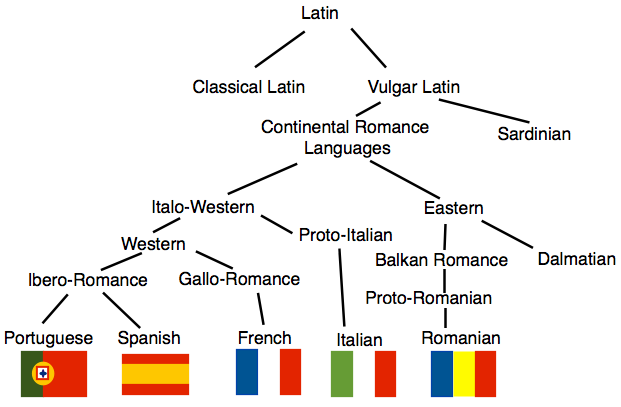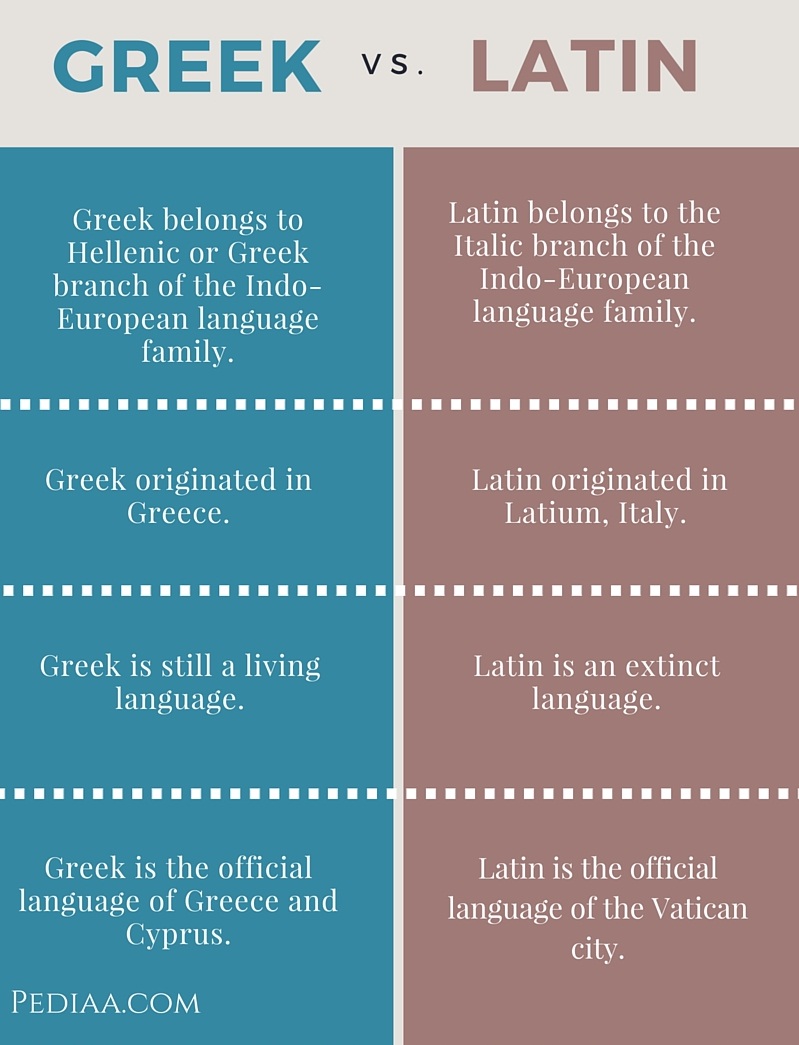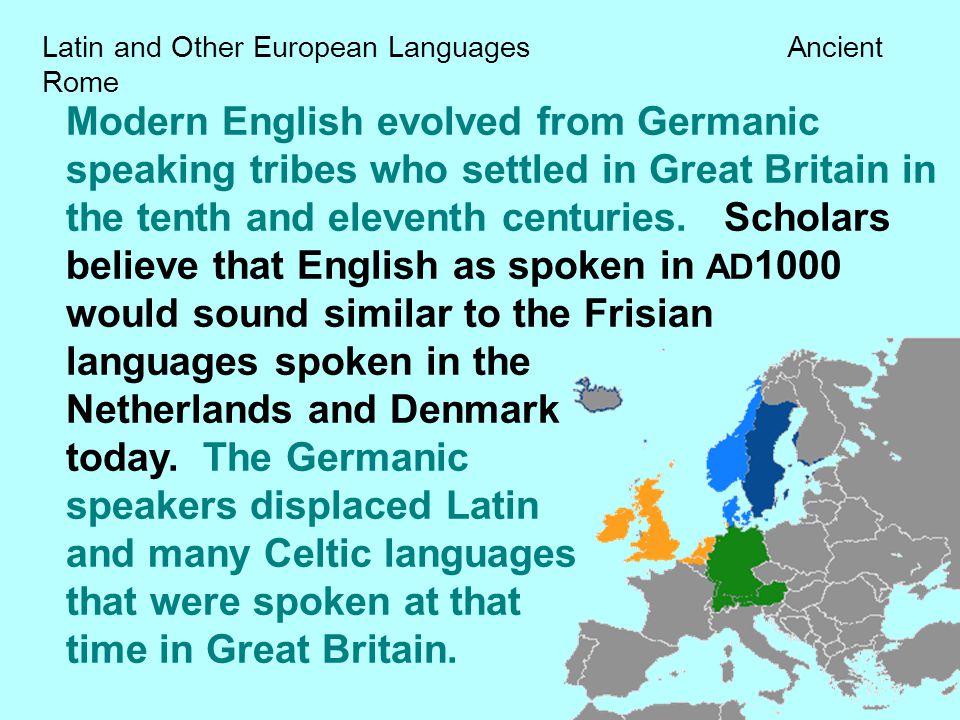
List of English words derived from Sanskrit. The Sanskrit language, whatever be its antiquity, is of wonderful structure; more perfect than the Greek, more copious than the Latin, and more exquisitely refined than either
Why Bother Learning Latin? “Who cares? It’s a dead language.” Yes, people still say this to me on occasion. But fear not! Latin is not dead!


The Romance languages (sometimes called the Romanic languages, Latin languages, or Neo-Latin languages) are the modern languages that evolved from Vulgar Latin between the sixth and ninth centuries and that form a branch of the Italic languages within the Indo-European language family.

General Overview. Origin and History. Latin (Lingua Latina) is a lanfuage of the Indo-European family that appeared in Italy in the mid 2nd millenium BC. Formerly it was argued that together with the other Indo-European languages of ancient Italy (Faliscan, Osco-Umbrian and Venetic) Latin forms a separate Italic linguistic group, but now this
In Europe, there is only one Classical language common to the whole area, and that is Greek.In a large and dominant subdivision of Europe, we also find Latin …
Latin language: Latin language, Indo-European language in the Italic group and ancestral to the modern Romance languages. Originally spoken by small groups of people living along the lower Tiber River, Latin spread with the increase of Roman political power, first throughout Italy and then throughout most of
Old Latin authored works began in the 3rd century BC. These are complete or nearly complete works under their own name surviving as manuscripts copied from other manuscripts in whatever script was current at the time.

Celtic languages: Celtic languages, branch of the Indo-European language family, spoken throughout much of Western Europe in Roman and pre-Roman times and currently known chiefly in the British Isles and in the …


The Roman or Latin alphabet is the alphabet used to write many modern-day languages.It is the most used alphabet and writing system in the world today. It is the official script for nearly all the languages of Western Europe, and of some Eastern Europe languages.


Even though it is no longer spoken today, Latin has exerted a major influence on many living languages, serving as the lingua franca of …